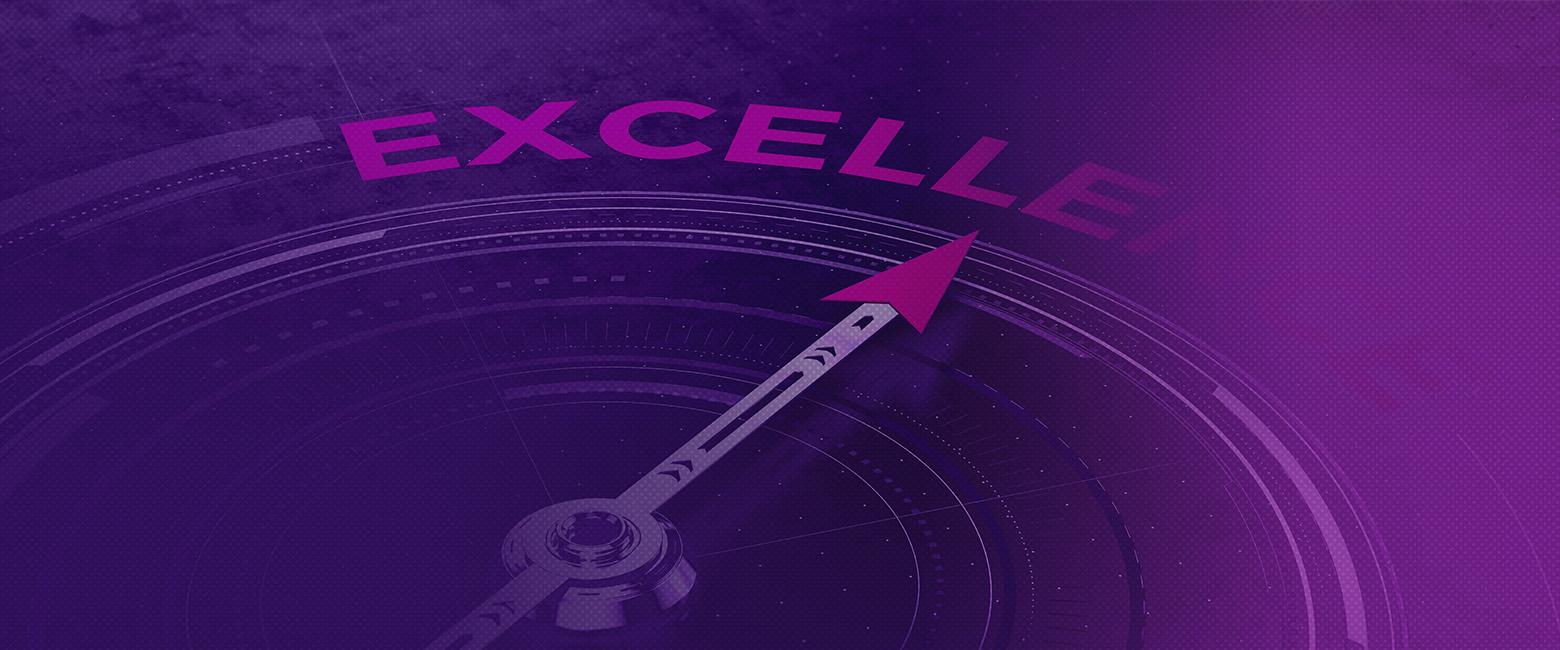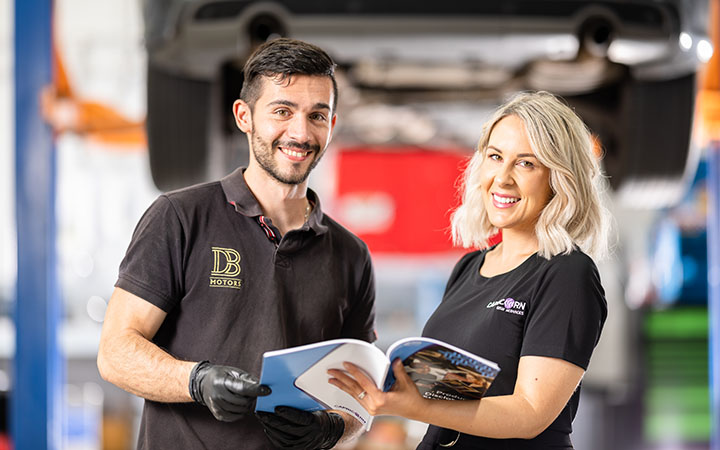To find out, we reached out to four Members who, by virtue of having an apprentice among the Top 5 Finalists in this year’s Capricorn Rising Stars, have a proven track record when it comes to excellence.
Define what excellence means in your workshop
Terry and Anita Seng run Paramount Automotive & Performance in Toowoomba, Queensland. They have three full-time staff members.
“Being a performance shop, we guarantee the highest quality of workmanship,” Anita said. “We’re working on $300,000 to $400,000 cars, so that forces you to strive to be the best—not only because you’re working on that quality of cars but because your customers expect it.”
This is a culture of excellence in microcosm— because the standard you settle for in the service you deliver is, ultimately, the level of your culture. That standard is set from the top. Reilly Sanders is the workshop manager at Tatiara Truck and Trailers in Bordertown, South Australia—a business with more than 60 staff.
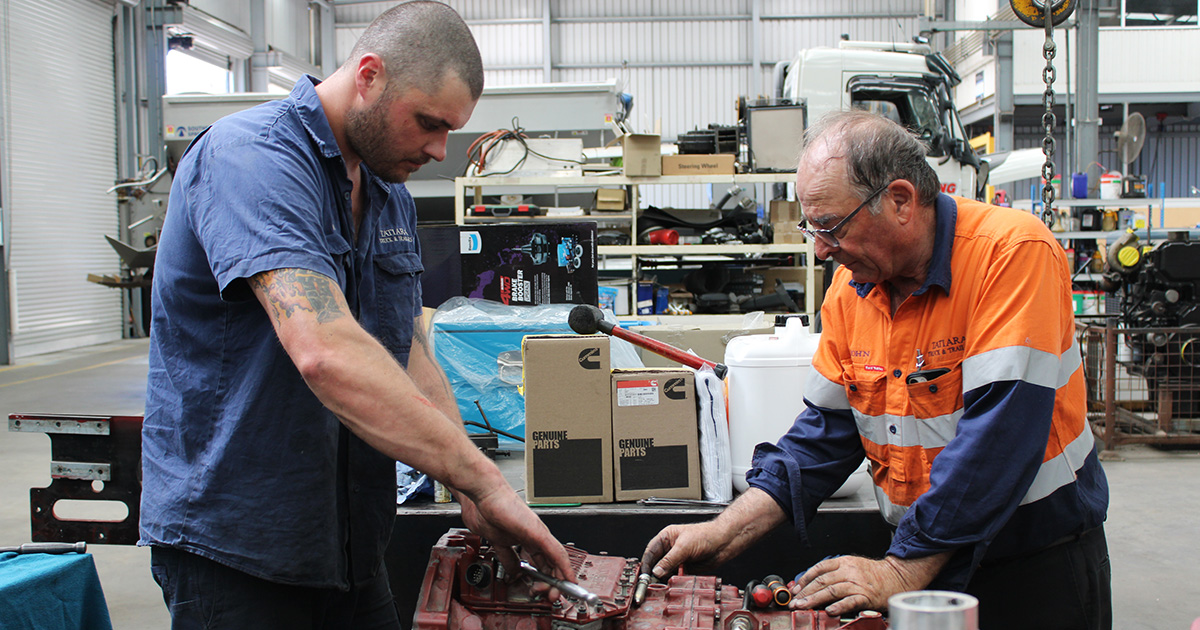
“Our culture is driven by a very passionate man who started the business 40 years ago,” Reilly said. “John (Jenkin) is 67 years old and he’s still here 100 per cent every day. He pushes himself beyond what anyone else would do. He has a huge amount of respect, but I think he also demands it, subconsciously. Everyone knows that he’s the boss and if you can be half the man he is, then you’re on the right track.”
Tatiara’s company values are listed on its website. The first one is “family is everything”—a point we’ll revisit later. The others are summed up in a mission statement that goes a long way to helping define a culture of excellence: “We are a successful, family founded and locally owned business that delivers a quality service, communicates customer needs, takes ownership in everything, commits to continuous improvement, embraces creativity and innovation, builds a positive team environment and is active in our community.”
Model what excellence looks like at your workshop
What John Jenkin is doing very effectively at Tatiara is modelling what excellence looks like to his team. John Edwards, from John Edwards Automotive in Geebung, Queensland, also believes in setting an example. “My father was in business and I saw the way he conducted himself and the way that he was held in high regard in the community,” John said. “I saw it work for him and I suppose it carried over for me.”
For John, that can mean something as central as living by the company values, or as simple as picking up litter on the forecourt. “Sometimes it’s just the little things, leading by example,” he said. “Let people see you care for your place, that you’re prepared to do the crap. When they see it, hopefully it brings them along.”
Setting a good model also extends to the way you treat your team. John follows the golden rule of always treating others as you’d like to be treated, as well as that old Australian ethos of giving everyone “a fair go”.
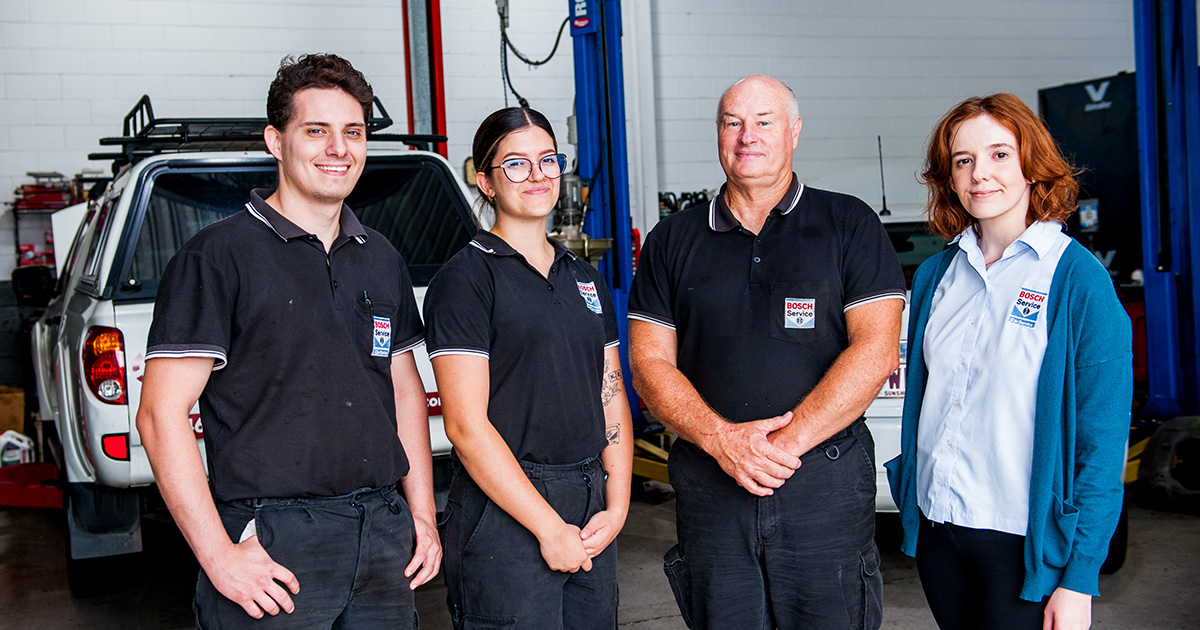
“I think that goes a fair way to being a success in business because people like to be told that they’ve done good, that they’re important and that they’re respected. Treat everyone as if you can learn something from them.”
At Rees Automotive Repairs in Cooma, New South Wales, Paul and Kathy Rees leave their team (and their customers) in no doubt about the standard expected. “We’ve always said in our advertising, ‘Always get it done right the first time. Take it to Reesy’,” Kathy said. “We don’t do comebacks. We always like to make sure everyone’s happy when they walk out the door.”
Rees is doing something right: they’re booked up eight to 10 weeks in advance. Back at Paramount Automotive & Performance, Anita says the key to creating a culture of excellence is creating a proper sense of being a team—not just of everyone belonging, but of everyone being valued, respected and professional. “We all have a uniform and it’s a good uniform,” Kathy said. “It costs us a couple of hundred dollars for each outfit. But when you put that on in the morning, it makes you feel like you want to be the best.”
Encourage and empower excellence within your team
All our Members said creating a culture of excellence meant both hiring the right people and training them appropriately.
When hiring, John Edwards looks for soft skills, like empathy and communication. Attitude in the interview is also key. He said the right candidate asks questions about training or about how to treat customers before they ask questions about money.
At Tatiara, the onboarding process includes spending a week in every department within the business—from administration to spare parts to sales to workplace health and safety. It’s all about giving the new starter a deep grounding in both the business and its culture.
At Paramount, Anita said: “When somebody comes here looking for a job, we basically try to talk them out of it. It takes a lot of effort to work at a shop like ours, when you’re modifying things beyond manufacturer specifications. You really have to use your brain every single day. It gets a bit daunting for new people.”
If someone turns out not to be a good fit for the team, they let them go quickly. “The saying that one piece of rotten fruit spoils the rest really is the truth.” When it comes to training, Anita said it’s best to gravitate towards an employee’s strengths and interests.
“We have one guy here who loves wiring and electrics, so we’ve really gone above and beyond to get him involved in all the aftermarket ECUs and all the little tips and tricks for neat wiring and all of those sort of things,” she said.
They also make training a team-building activity. “If Terry is doing a Dyno and it’s a bit out of the ordinary, he’ll say to the guys, ‘Okay, this Wednesday at 4pm, I’m starting this Dyno’. Obviously, it’ll be a couple of hours so they might have to stay back late, but the guys are just happy to be a part of it and to be learning and to be involved.”
Recognise and reward excellence in your team
Having good, respectful and open communication channels between all members of a team is a critical factor to success common to all these workshops. It’s particularly vital in a workshop like Paramount, where creative solutions are often a team effort.
“We are very big on communicating—on keeping everyone updated with what’s going on in the workshop, what customers are expecting with certain jobs or when they’re expecting them,” Anita said. “If our team have any issues, they know that they can come and talk to us and we’ll listen. If they’ve got any ideas on how something might be done better, we’ll listen to it. We do a lot of brainstorming and I think that comes from being approachable and listening and being human.”
At Tatiara, as with all our workshops, part of the approach is to treat employees like members of the family.
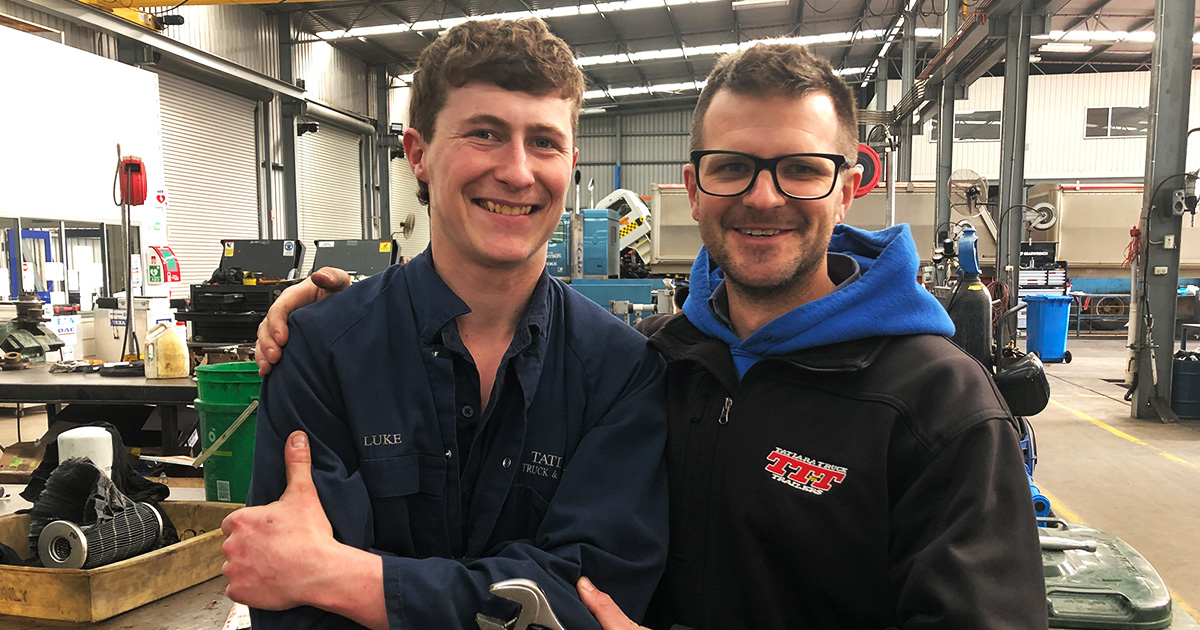
“Anytime they need help with anything, whether it’s in work hours or outside of work hours, we’ll help them where we can,” Reilly said. “In the last five years, we’ve put a big focus into retention and keeping quality staff and making sure they’re happy. I’ve noticed myself, and having instilled it in other people in leadership positions in our business, that something as simple as a thank you can make a big difference. That open and honest feedback—a ‘thank you, great job, you’ve done so well’—it also gives you leverage when perhaps something hasn’t gone quite right. Then staff are also open to that and they look for that feedback as well.”
Feedback at Tatiara is also formalised, ensuring everyone is clear on their roles, responsibilities and performance. Feedback flows in both directions—from management to employees and vice versa.
John Edwards said he tries to encourage his team as much as he possibly can, even when there’s a problem. “If there’s a problem we’ll have a bit of a group discussion and ask, ‘how can we improve this? We didn’t do this well yesterday, we had a car come back, what went wrong? How can we all deal with it?’ It’s non-judgemental. We’re always trying to build a person up, not tear them down. Because it’s easy to tear someone down, but it’s difficult to build them up again.”
